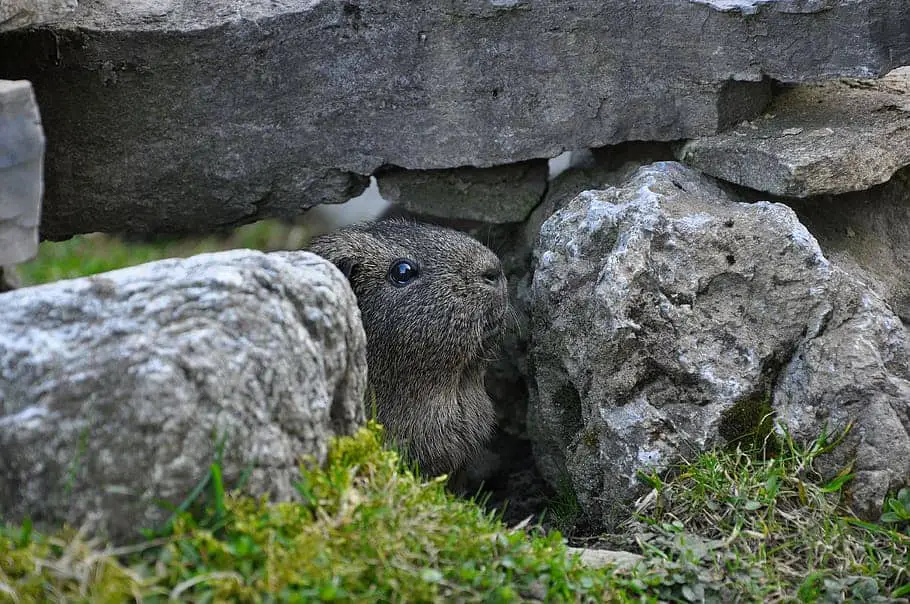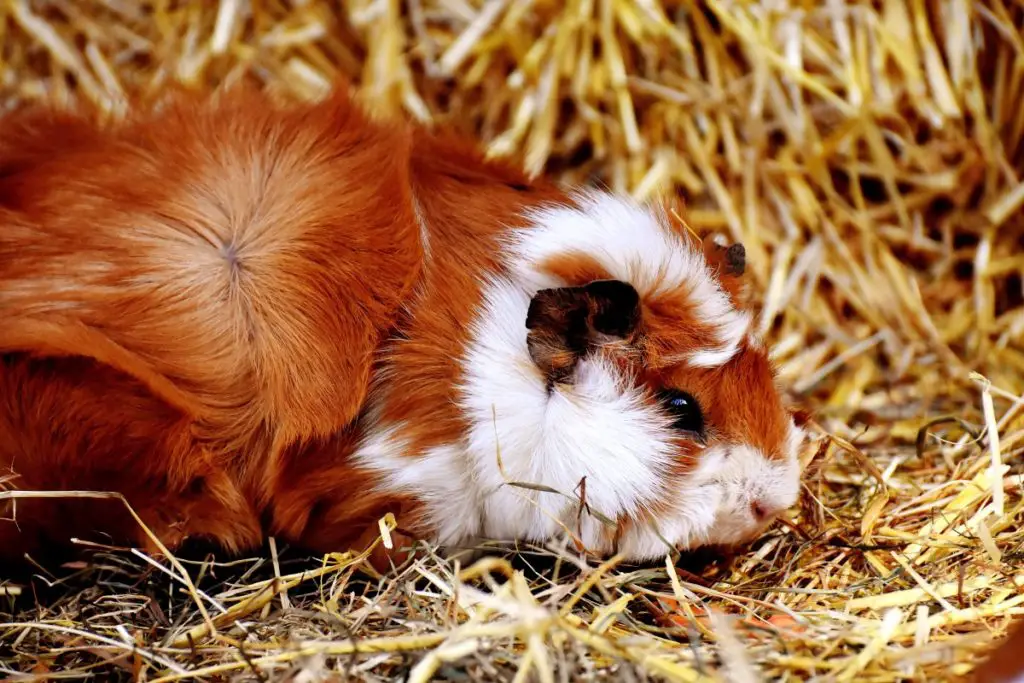Guinea pigs are remarkable creatures. Their adorable personalities and cute appearance have caused them to work their way into the hearts and homes of millions of families. However, while most people know a thing or two about these cute little balls of fur, there’s much more that people do not know. One question that people often have is: do guinea pigs burrow?
It’s a natural question to have. After all, many of the guinea pig’s closest relatives, such as the rat and the hamster, do burrow. As such, it’s reasonable to assume that guinea pigs do the same, right? Well, the answer is not that simple. Guinea pigs actually do not burrow, and the reason why they do not, while many of their close relatives do, is quite interesting. Let’s take a closer look.
Why do guinea pigs not burrow?

Many rodents, such as hamsters, rats, mice, and rabbits create burrows. They do this because it allows them to hide from predators. Since guinea pigs are also rodents, and also prey animals, it’s logical to assume that they would display similar behavior.
However, this is not the case. Unlike many other rodents, guinea pigs do not burrow. The reason why guinea pigs do not burrow is that they’re nomadic animals. Guinea pigs are native to the grassy plains of the Andes mountain range where they live in small groups called herds. They feed on the grass that grows on the plains. However, since grass is very low in energy, they have to eat large amounts of it. As such, they’re always on the move and do not stay in a single place very long.
Creating a burrow is quite a labor-intensive process, you have to dig quite deep in order to create a proper burrow which costs a lot of energy. This is not worth doing if you’re a nomadic animal that does not stay in the same place for very long. As such, it wouldn’t make sense for guinea pigs to create burrows.
However, while guinea pigs might not do the hard work of creating burrows themselves, they have no problem with “borrowing” the burrows that other animals or nature have created. They often seek shelter in the burrows of other animals. This is quite smart. It means that they do not have to do the hard work of creating the burrow, but they still get to enjoy the benefits.
Do guinea pigs burrow in their bedding in captivity?

Now that we’ve established that wild guinea pigs do not burrow you might whether this behavior is any different in captivity. After all, wild guinea pigs are extinct and nowadays they only live in captivity.
The answer to this question is actually quite logical. Captive guinea pigs are no longer nomadic. They live in their cage, which is their home. Because of that, the same logic that prevented them from burrowing in the wild no longer applies. On top of that, it’s much easier to burrow in the soft bedding than in the hard soil of the Andes mountains. So, yes, in captivity, guinea pigs do indeed like to burrow in their bedding, which is one of the reasons why you need to make sure that you put at least 3 inches of bedding in their cage.
Can guinea pigs dig holes?
Guinea pigs can not dig. They do not have the tools to do so. Their paws are simply not strong enough. The reason why they can’t dig is simple: they never needed it to survive.
This is good news though if you plan on keeping your guinea pig in a fenced area in your back yard for a while because you do not need to worry that they’ll dig under it and escape.
Final words
There you have it, everything you need to know about guinea pigs and burrowing. As we’ve discovered, guinea pigs do not burrow in the wild because they’re nomadic animals. They do take shelter in the burrows of other creatures but are incapable of creating their own burrows. In fact, they can not even dig!
In captivity, it’s a bit different. They do enjoy burying themselves in their own bedding, but that’s because it’s a lot less effort to move bedding around than dirt.
- How Long Do American Eskimo Dogs Live? Important Factors and Care Tips - September 29, 2023
- Do American Bulldogs Need Grooming? Essential Tips and Care Guidelines - September 29, 2023
- Do Bengal Cats Enjoy Playing? Essential Tips for Keeping Them Active - September 29, 2023